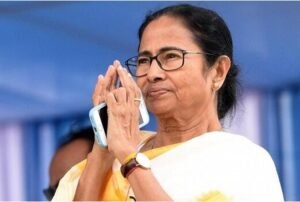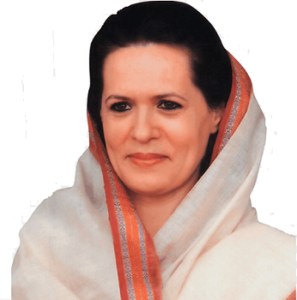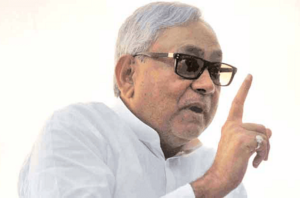India, a vibrant democracy, is home to a diverse array of political leaders who shape the nation’s destiny. Here are 10 of the most influential politicians who are currently making headlines:
1. Narendra Damodardas Modi
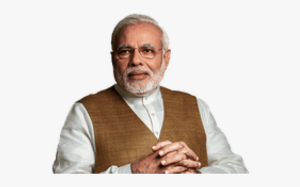
Narendra Damodardas Modi, born on September 17, 1950, in Vadnagar, Gujarat, is the current and 14th Prime Minister of India, a role he assumed in May 2014. Known for his decisive leadership, Modi’s policies have aimed to strengthen India’s global presence and foster economic growth. His government’s focus on digital transformation, economic reforms, and infrastructure development has reshaped the nation’s trajectory. Programs like “Make in India,” “Digital India,” and “Swachh Bharat Abhiyan” have encouraged innovation and civic responsibility among Indian citizens.
Modi’s international diplomacy has also played a key role in enhancing India’s standing on the global stage. He has fostered strong ties with countries across the world, expanding economic and strategic alliances. However, his administration has also faced criticism over policies like demonetization and the Citizenship Amendment Act, which have sparked debates about social and economic impact.
With his charismatic leadership style, Narendra Modi has become a symbol of hope and progress for many Indians. His journey from humble beginnings to the highest office highlights his resilience and dedication to India’s growth and development.
2.Amit Shah
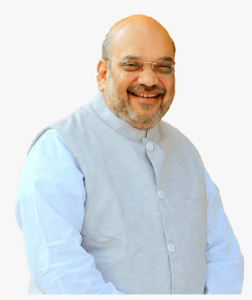
Amit Shah, the current Home Minister of India, has been a central figure in the Bharatiya Janata Party (BJP) and a close associate of Prime Minister Narendra Modi. His political journey began in Gujarat, where he worked alongside Modi to strengthen the BJP’s base. Shah is known for his strategic acumen, dedication, and ability to mobilize support, which led him to become BJP President in 2014. His leadership marked a turning point in Indian politics, with the BJP achieving historic electoral successes, including the 2019 general elections.
Shah’s policies and decisions have been impactful. His role in the abrogation of Article 370, which granted special status to Jammu and Kashmir, showcased his commitment to the BJP’s agenda of “One Nation, One Constitution.” As Home Minister, he has also emphasized national security, leading initiatives against terrorism and managing India’s internal security challenges. However, his approach has often been polarizing, garnering both strong support and criticism.
Despite controversies, Amit Shah’s influence on Indian politics is undeniable. His strong organizational skills and strategic vision continue to shape the BJP’s trajectory and influence the political landscape of India.
3.Mohan Bhagwat
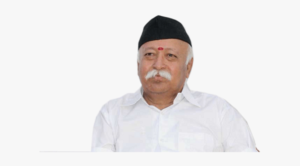
Mohan Bhagwat, the Sarsanghchalak (chief) of the Rashtriya Swayamsevak Sangh (RSS), has been a transformative leader in the organization since taking charge in 2009. The RSS, a socio-cultural organization with a nationalist ideology, has been influential in shaping India’s political and social landscape. Bhagwat’s leadership has guided the RSS through a period of significant growth and influence, especially as the organization has strengthened its relationship with the Bharatiya Janata Party (BJP).
Bhagwat is known for his emphasis on unity, cultural pride, and the promotion of a “Hindu Rashtra,” a concept that advocates for a cultural and spiritual identity rooted in Indian traditions. He has modernized the RSS’s image, emphasizing inclusivity and community welfare, and has engaged in dialogues that highlight the importance of India’s pluralism. Bhagwat has also called for reforms within Hindu society, advocating for the eradication of caste-based discrimination and promoting social harmony.
Under his leadership, the RSS has expanded its outreach, focusing on social service, rural development, and education. Bhagwat’s vision and pragmatic approach continue to shape the RSS’s influence in India, making it a crucial force in the country’s socio-political dynamics.
4.Rajnath Singh
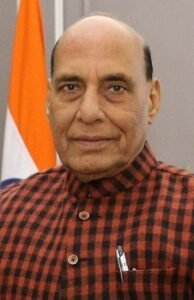
Rajnath Singh, India’s current Defense Minister, is one of the senior leaders of the Bharatiya Janata Party (BJP) and a respected figure in Indian politics. With a political career spanning over four decades, Singh has served in various critical roles, including Chief Minister of Uttar Pradesh, Home Minister, and BJP President. Known for his integrity and strong principles, Singh has played a significant role in shaping the BJP’s policies and guiding its ideological stance.
As Defense Minister, Singh has focused on strengthening India’s defense capabilities, with a particular emphasis on indigenization of defense production under the “Atmanirbhar Bharat” (self-reliant India) initiative. He has been instrumental in bolstering India’s defense alliances and ensuring a proactive approach to national security, especially concerning issues along the borders with China and Pakistan. Singh’s diplomatic efforts have enhanced defense partnerships with countries such as the United States, Russia, and France, reinforcing India’s global defense posture.
Rajnath Singh’s steady and balanced leadership style has made him a unifying force within the BJP, respected by colleagues across party lines. His commitment to India’s defense and self-reliance reflects his vision for a secure and empowered nation.
5.Yogi Adityanath
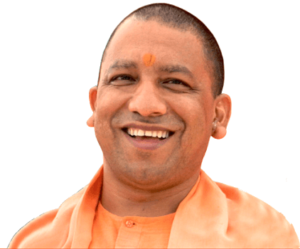
Yogi Adityanath, the current Chief Minister of Uttar Pradesh, is known for his unique blend of politics and spiritual leadership. A five-time Member of Parliament from Gorakhpur before becoming Chief Minister in 2017, Adityanath is also the head priest (Mahant) of the Gorakhnath Math, a prominent Hindu temple in Gorakhpur. His leadership style combines strong nationalist themes with a focus on law and order, economic development, and religious heritage.
As Chief Minister, Adityanath has implemented several high-profile policies aimed at improving infrastructure, boosting investment, and addressing crime. His administration has focused on strict law enforcement and introduced measures like the “anti-Romeo squads” to address harassment of women. Under his leadership, Uttar Pradesh has attracted significant investment through initiatives such as the UP Investors Summit, aimed at creating jobs and boosting the state’s economy.
Adityanath’s tenure has garnered both praise and criticism. Supporters highlight his commitment to economic growth and law enforcement, while critics raise concerns over religious tensions and civil liberties. Nonetheless, his strong governance and unyielding approach have made him one of the most recognized and impactful leaders in Indian politics.
6.Rahul Gandhi
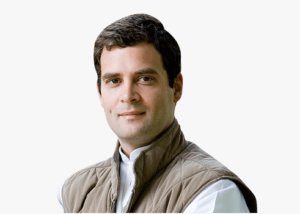
Rahul Gandhi, a prominent leader of the Indian National Congress (INC) and Member of Parliament from Wayanad, Kerala, has emerged as a key figure in India’s opposition politics. A member of the Nehru-Gandhi family, Gandhi has been involved in politics since 2004 and has held various roles within the Congress Party, including serving as its president from 2017 to 2019. Known for his advocacy on issues of social justice, economic equality, and democratic rights, Gandhi has sought to position the Congress as a counterbalance to the ruling Bharatiya Janata Party (BJP).
Rahul Gandhi’s leadership style emphasizes grassroots engagement and direct communication with citizens, often highlighting concerns related to unemployment, agrarian distress, and economic disparities. His “Bharat Jodo Yatra” in 2022-23 was a significant campaign aimed at fostering unity, inclusivity, and dialogue across different regions and communities in India. Gandhi’s efforts to engage with young voters and marginalized communities reflect his commitment to a more equitable and inclusive India.
Although he faces criticism for the Congress Party’s recent electoral challenges, Rahul Gandhi’s resilience and vision continue to make him a prominent voice in Indian politics, advocating for an India based on secularism, social harmony, and democratic values.
7.Arvind Kejriwal
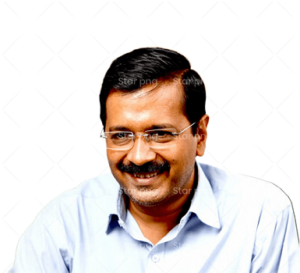
Arvind Kejriwal, the Chief Minister of Delhi and leader of the Aam Aadmi Party (AAP), has redefined politics in the national capital with his focus on anti-corruption, public welfare, and governance reform. Originally a civil servant and social activist, Kejriwal gained prominence through his work in the Right to Information movement and as a key figure in the India Against Corruption campaign. In 2012, he co-founded AAP with the mission of bringing transparency and accountability to Indian politics.
Since assuming office in 2015, Kejriwal has pioneered a governance model that prioritizes healthcare, education, and basic services. The “Delhi model” of governance includes initiatives such as free electricity for low-income households, Mohalla Clinics for accessible healthcare, and significant investments in public education, transforming government schools into highly regarded institutions. These efforts have garnered support and positioned AAP as a promising political alternative in other states.
Kejriwal’s focus on development and social equity has earned him widespread popularity, but his tenure has not been without controversy, especially around conflicts with the central government. Nonetheless, his commitment to grassroots welfare and systemic reform has made him a distinctive and influential figure in modern Indian politics.
8.Mamata Banerjee
